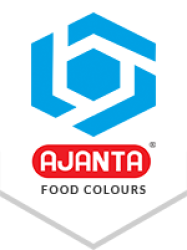Turkey, located between Europe and Asia, has a strong economy driven by various businesses and thriving manufacturing sectors. This makes Turkey an important player in global trade, connecting Eastern and Western markets.
In manufacturing, Turkey has a history of making a wide range of products, from cosmetics to medicines to industrial goods. When making any product, many parts are important, and one crucial aspect is colour. Colours play a big role in how attractive a product looks to customers, helping businesses sell their products and build their brands.
Colours also affect how Turkish consumers behave, especially in the food industry where they prefer vibrant and appealing colours. To meet this demand, Turkey imports artificial food colours from different countries, especially India, Denmark, and Germany.
Turkey Industries Where Colours Play a Vital Role
Turkey has a diverse range of industries where colours play a vital role. Here are some sectors where the use of colours is significant:
Food and Beverage Industry
In Turkey, food and beverage manufacturers often face challenges when choosing colours for their products. They need colours that stay stable over time, maintain high quality, achieve the perfect shade, and meet regulatory standards. Ensuring the colours don't fade or change can be tough. Synthetic colours, though, play a vital role in solving these issues in the Turkish food and beverage industry. These colours offer consistency, versatility, and stability that meets stringent quality standards. Bright and consistent colours make food and beverage more attractive on shelves that catch the attention of potential buyers. These visually appealing products increase sales for manufacturers as consumers are drawn to attractive and trustworthy products. So, synthetic colours not only ensure quality but also contribute significantly to the growth of the food and beverage industry in Turkey. In Turkey, many colour suppliers and distributors import colours from other countries in bulk quantities and sell them in the Turkish market, making a profit on each sale. Some of them sell the colours under the same company’s brand name, from which they bought colours, while others create their own labels and sell the colours under their brand name. The majority of the food and beverage processing industry of Turkey is located around major metropolitan areas in Western Turkey, on which Istanbul, Izmir, and Antalya like cities, are included. According to Statista, revenue of the Turkish food market amounts to US$160.67 billion in 2025, and it is expected to grow annually by 11.33% (CAGR 2025-2030).
Cosmetics Industry
One of the challenges faced by Turkey manufacturers of cosmetic products is choosing the right colour for their products. Colour is an important factor that influences the consumer's perception and preference for cosmetics. The colour should match the desired shade, have good stability and durability, and be safe and compatible with the skin. Synthetic colours offer many advantages for cosmetic manufacturers. They have a wide range of hues, high colour strength, consistent quality, and low cost. Synthetic colours can also help boost the sales of cosmetic products by creating attractive and appealing products, including lipstick, eyeshadow, foundations, nail polish, and many more. Turkey is one of the leading producers and exporters of cosmetic products in the world. The major manufacturing hubs of cosmetics in Turkey are located in Istanbul, Izmir, Ankara, and Bursa. The cosmetics industry of Turkey generates a significant amount of revenue and contributes to the country's economy and employment. According to Statista, the revenue of the cosmetics market of Turkey is projected to reach US$1.34 billion in 2025, and it is expected to experience an annual growth rate of 4.49% (CAGR 2025-2030).
Pharmaceuticals Industry
Manufacturers in Turkey often encounter challenges when selecting the right colours for their pharmaceutical products. This decision is crucial as it affects stability and other essential factors. The significance of colours in pharmaceuticals cannot be overstated. colours help patients and pharmacists differentiate between different medications, ensuring safe usage and proper administration. Synthetic colours play a vital role in enhancing the visual appeal of medicines and providing stability to tablets, capsules, syrups, health supplements, etc. They prevent changes in colour and size over time, crucial for maintaining customer trust in the product brand. In Turkey, most of the manufacturing facilities of pharmaceuticals are predominantly located in major cities like Istanbul, Ankara, and Izmir. The pharmaceutical industry significantly contributes to the country's economy, generating substantial revenue. According to Statista, Turkey ranked 21st in the pharmaceutical market, and it is expected to reach US$2.14 billion in 2025. Looking ahead, the revenue is anticipated to exhibit an annual growth rate of 4.29% (CAGR 2025-2029), resulting in a market volume of US$2.53 billion by 2029.
Chocolate Industry
Turkey's chocolate makers often find it challenging to pick the right colour for their products. Getting the perfect shade that stays stable is tough. But the colour matters a lot, it affects how people see and like the chocolate. Different colours make us feel different things and help brands stand out. To solve this problem, manufacturers can use synthetic colours. These man-made dyes and pigments give consistent results, and come in lots of shades, so it's easier to match the colour just right. That makes the chocolates look better on the shelves, which can help sell more. Bright, eye-catching colours are especially attractive to kids and women, influencing their buying decisions. And these colours are safe for kids, approved by government authorities like the U.S FDA (Food and Drugs Administration). Safety is a big deal, especially for products aimed at children. In Turkey, colourant merchants source colourants from domestic or foreign suppliers at competitive prices. They sell these colourants to various industries such as food and beverages, cosmetics, and pharma, at higher prices, making a profit on each deal. They may also offer discounts or incentives to attract customers. By managing their inventory efficiently and providing quality customer service, colourant merchants can boost their sales and profitability. Ajanta Food Colours is a trusted manufacturer of food colourants that offers high-quality products at affordable prices. Many merchants, suppliers, and distributors choose Ajanta because they value its quality and affordability. In Turkey, most of the chocolate manufacturing industries are located in Istanbul, Bursa, and Izmir, where the market is lively and always growing. Plus, Turkey's Chocolate Confectionery market amounts to US$3.45 billion in 2025. The market is expected to grow annually by 13.95% (CAGR 2025-2030).
Animal Feed Industry
Turkey manufacturers face many challenges in choosing the right colour for their animal feed products. Colour is an important factor that affects the quality, stability, and attractiveness of the feed. Different colours can have different effects on the appetite, health, and behaviour. Therefore, turkey manufacturers need to select the colour that best suits their needs and preferences. A possible solution to this problem is to use synthetic colours in animal feed. Synthetic colours are artificial additives that can enhance the appearance and quality of the feed. Synthetic colours can also provide consistency and stability to the feed, as they are less affected by environmental factors such as heat, light, and moisture. Synthetic colours can help turkey manufacturers to produce high-quality and appealing feeds that can boost their sales and profitability. Turkey is one of the major producers and consumers of animal feed in the world. The main regions where most of the animal feed manufacturing industries are located are Istanbul, Ankara, Izmir, Bursa, and Konya. According to Statista, the revenue of the Pet Food Market of Turkey is projected to reach US$1.37 billion in 2025, and it is expected to show an annual growth rate (CAGR 2025-2029) of 12.55%, resulting in a projected market volume of US$2.20bn by 2029.
Cultural Preferences of Colours in Turkey
In Turkey, cultural preferences for colours play a significant role in consumer choices. Understanding these preferences can help manufacturers strategically tailor their products for better sales. For instance, warm and vibrant colours like red and orange are often associated with energy and vitality, making them appealing for food and beverage. Similarly, for chocolates, rich and luxurious colours such as deep browns and gold can evoke feelings of indulgence and quality. In cosmetics, soft pastel shades like pink and peach are favored for their association with femininity and beauty. By aligning product colours with cultural preferences, manufacturers can create a stronger emotional connection with consumers, ultimately boosting sales and market appeal.
Regulatory Guidelines on Colours in the Turkey Market
Regulatory guidelines for colours in products are crucial for ensuring safety, consistency, and consumer satisfaction. These guidelines dictate the types and amounts of colourants that can be used in various products, such as cosmetics, food items, and pharmaceuticals. Adhering to these regulations helps prevent harmful substances from being ingested, absorbed, or applied to the skin, reducing the risk of adverse reactions or health issues. In Turkey, the governmental bodies responsible for ensuring product colour quality include the Ministry of Agriculture and Forestry, the Ministry of Trade, the Turkish Standards Institution (TSE), and the Ministry of Environment and Urbanization.
Compliance with colour regulations also ensures uniformity and accuracy in product labeling, which aids consumers in making informed choices about the products they purchase. By following these guidelines, manufacturers can demonstrate their commitment to product safety and transparency, fostering trust and confidence among consumers and regulatory authorities alike. Overall, adherence to regulatory guidelines for colours in products is essential for protecting public health, promoting consumer confidence, and upholding industry standards.
Ajanta Colours is a reputable company with more than 75+ years of expertise in the colourant industry. It adheres to all the regulations of the Turkish government and other Asian and European markets where it exports its products, such as Bulgaria, Greece, Armenia, etc.
Ajanta Colours has earned various certificates that attest to the quality and safety of its colours. It has an FDA certificate, an ISO 9001:2015 certificate for its quality management system, a HACCP certificate for its food safety system, a HALAL certificate for its compliance with Islamic dietary laws, a KOSHER certificate for its compliance with Jewish dietary laws, etc.
Ajanta Food Colours is the best option for Turkish entrepreneurs who want high-quality colours. It offers competitive prices and timely delivery. It also provides customized solutions and assistance in case of technical issues. It has a wide range of colours for different applications, so you can find what you need. And its consistent quality ensures your satisfaction every time. It cares about your happiness with its products.
To know more about Ajanta Food Colours and its Supra range of colours, or for any other information, please contact us today!





